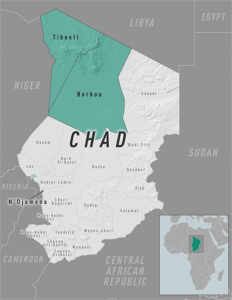By NewsDesk @infectiousdiseasenews
The Centers for Disease Control and Prevention (CDC) issued a travel notice this week for the north-central African country of Chad because of an outbreak of visceral leishmaniasis.

Sporadic cases of leishmaniasis have been reported in Chad since 2018. Since 1 January 2018 to 31 May 2021, a total 122 cases of VL and six fatalities have been reported by three provinces of N’Djamena, Borkou and Tibesti.
Recently, cases have increased, prompting the Ministry of Health and National Solidarity to activate a National Coordination team to strengthen surveillance, increase the capacity of health care workers, and provide drugs and rapid diagnostic tests to provincial hospitals.
The risk of infection for most travelers is low. Travelers at highest risk for infection are long-term travelers, expatriates, adventure tourists, immigrants, refugees, missionaries, and humanitarian workers.
There are no vaccines or medicines that prevent leishmaniasis. CDC advises travelers to affected areas in Chad take the following steps to prevent sand fly bites.
Visceral leishmaniasis (VL), also known as kala-azar, or black fever, is the most serious form of leishmaniasis. It is a disease caused by a parasite of the genus Leishmania. Among parasites,
it is the second biggest killer in the world after malaria. Each (Plasmodium and Leishmania) is responsible for an estimated half a million deaths worldwide each year.
- Guinea reports ‘probable’ Marburg fever case
- Mosquito-borne viral disease, Jamestown Canyon Virus, detected in New Hampshire resident
- France reports 1st local transmission of dengue in Var department
- China reports two additional human H5N6 avian influenza cases
- Nigeria reports 4 additional confirmed monkeypox cases in July
- Malaysia COVID-19 cases top 20,000 in one day for the first time

